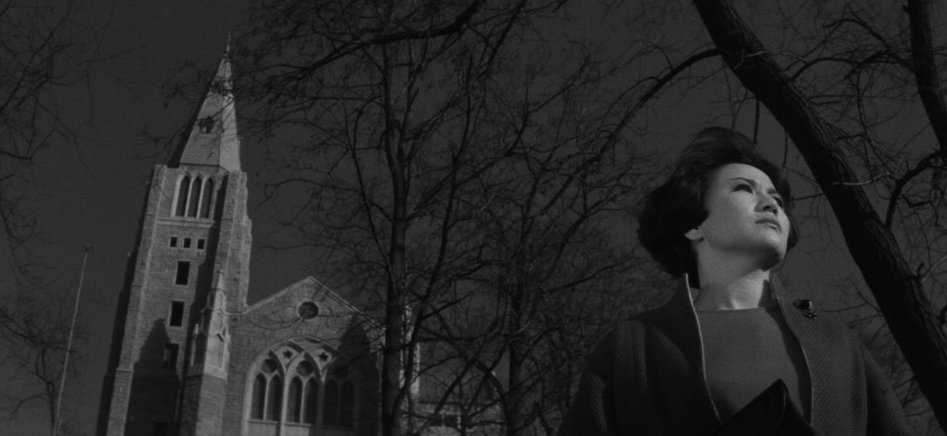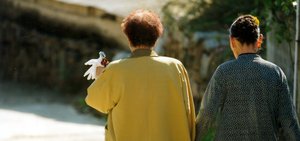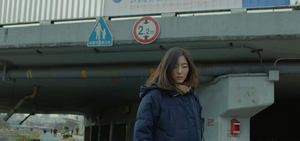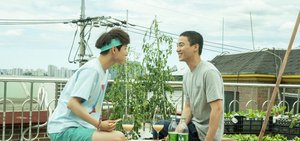Homebound

귀로
Homebound (1967), alongside Full Autumn (1966) and A Day Off (1968), is known as one of Lee Man-hee’s masterpieces of melodrama. Lee is known for being a director who does not use the spaces in his films as mere locations, but instead as devices to portray the psychological state of his characters, or to communicate awareness of the film’s overall theme. Lee contrasts the silence, broken simply by the sound of footsteps on the stairs at the two-story mansion in Incheon, and the streets of the city of Seoul overflowing with the sounds of people and car horns. He uses this to effectively depict Ji-yeon both as a wife responding to societal expectations, and as an agent of desire.
A hectic main station, hordes of cars traversing the overpasses, rows of neon signs; in this Seoul she runs in her high heels, laughs out loud, and drinks beer. However, when night falls she boards the train, and returns home, where she must dutifully resume her role as sombre wife. Through the character of Ji-yeon, who, no matter where she is cannot remain silent, the film uses its visual beauty to recreate the disorder and uneasiness inherent for this woman making the transition from traditional to modern society. (JM)
Director: Lee Man-Hee
Writer: Baek Gyeol
Producer: U Gi-Dong
Cast: Kim Jin-Kyu, Moon Jung-Suk, Kim Chung-Chul, Lee Yong
Production Company: Se Ki Corporation
Rights Holder: Se Ki Corporation
Drama / 1967 / 91 min / CERT. 18 / B&W / DCP / Original Format: 35mm
Selected Filmography
The Road to Sampo (1975)
The Wild Flowers in the Battle Field (1974)
Break up the Chain (1971)
Life (1969)
The Starting Point (1967)
A Hero Without A Serial Number (1966)
Full Autumn (1966)
A Water Mill (1966)
Heilong River (1965)
Black Hair (1964)
The Marines Who Never Returned (1963)
Call 112 (1962)
Kaleidoscope (1961)




